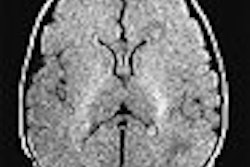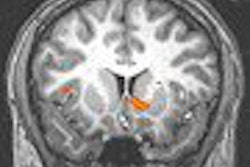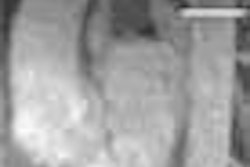The American College of Radiology has scuttled a highly controversial program to accredit extremity MRI facilities -- a plan that critics had decried as giving an ACR stamp of approval to self-referring orthopedists.
Instead, the organization will try to convince Congress to somehow limit orthopedists' installation of extremity MR machines because the resulting self-referrals drive up healthcare costs, said Dr. E. Stephen Amis, president of the ACR of Reston, VA.
Saturday's vote to cancel the Orthopedic MRI Accreditation Module was a complete about-face for the board, which had unanimously approved the accreditation program in January.
Amis said the reversal was precipitated by an April 13 decision on the part of the ACR's Commission on Government and Public Relations to pursue a legislative remedy to the issue of physician self-referral.
In particular, Amis said, the new plan to draft anti-self-referral legislation for Congress seemed incompatible with any plan to accredit likely self-referring facilities.
"If we weren't going forward with legislation, it would make sense for us to be in control of the quality of the imaging and the qualifications of the technologists (in extremity MRI facilities)," Amis said. "As it was, it just seemed like it sent a very mixed message based on the April 13 decision."
Therefore, at the Board of Chancellors' meeting on Saturday, the first day of the college's annual meeting in Washington, DC, Amis proposed that the ortho MRI accreditation plan be abandoned.
Even if the 27-member board hadn't acted, the ortho MRI plan might have been terminated by the 300-member ACR Council.
Opponents targeted the accreditation plan with two resolutions that were slated for council consideration on Thursday. Those resolutions were made moot by the board's preemptory vote.
The ortho MRI module was originally scheduled to go into effect two months after it was first approved. But as of the planned March launch, the module was facing a groundswell of opposition.
Amis had delayed the module’s rollout pending a council vote. Most ACR accreditation programs require council approval, but the ortho MRI module was exempted as an extension of the existing accreditation program for MRI facilities.
The college doesn't expect to see quick Congressional action on physician self-referral, given the competing priorities and distractions in a presidential election year. Nonetheless, work is already underway to draft language for a bill and determine the financial impact of imaging self-referral, Amis said.
"The cost of healthcare is growing faster for imaging than anything else," Amis noted. "That's going to be how we sell this."
By Tracie L. ThompsonAuntMinnie.com staff writer
May 11, 2004
Related Reading
Protests stall ACR’s accreditation of extremity MRI shops, March 23, 2004
ACR weighs more allegations over expert testimony, April 27, 2004
Low-field MR turns in varying results for MSK abnormalities, trauma, December 22, 2003
Copyright © 2004 AuntMinnie.com



















